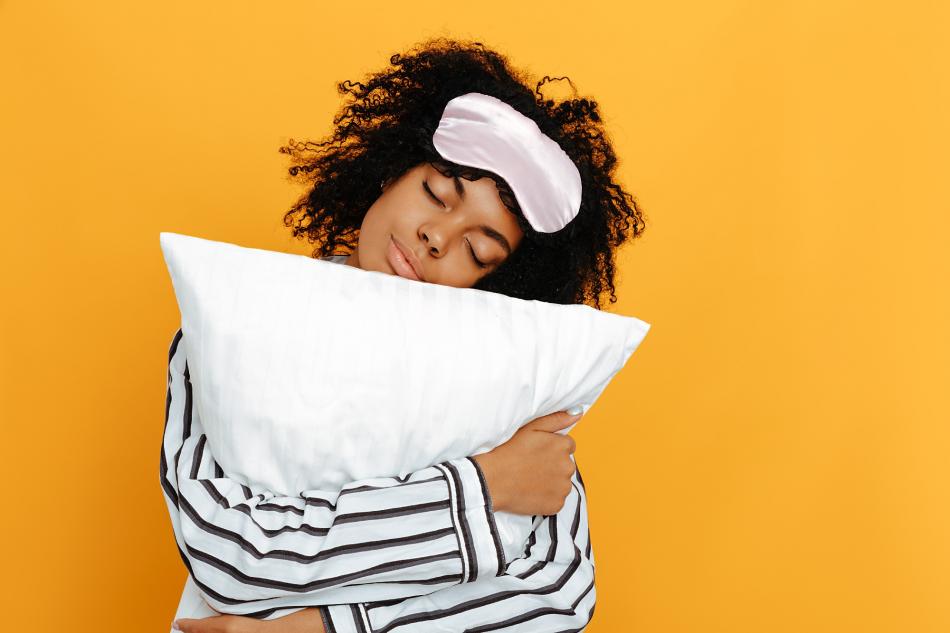Getting a Good Night's Sleep
Published in blogs by Caroline Mills, 2nd June 2020

We all know that good sleep is critical for our health and wellbeing. With busy lifestyles, it is often the first thing that we sacrifice, something that we will catch up on eventually.
Good quality sleep is as essential to our overall health and optimum functioning as a good quality diet and well-rounded exercise. It is during sleep time that our body goes into rest and repair mode – our muscles, our brains, our immune system and our emotions.
Recent weeks have seen us face unprecedented times, the COVID-19 pandemic - disruption to our daily lives, juggling jobs and families primarily in our home environment, and a time where stress levels are at an all-time high. However, on the upside, it may well have been a time to refocus and prioritise, to factor more relaxation and sleep into a busy day, in other words, take these things off the backburner and realise their benefits.
Much is written about the quantity of sleep we require. The quantity varies according to your age and genetic makeup as well as your quality of sleep. Generally, for most adults, 7-9 hours of sleep is ideal for supporting both mental and physical health. However, it’s not just about the length of time we sleep, it is about the quality of that sleep.
With everything you pack into a day, three things must be a regular in your day-to-day routine:
Be consistent with these times. They regulate your body clock, so your health and wellbeing depend on it. There may be occasions, which call for time variation here, but they are just that; variations, not the norm. Thirty minutes is usually the time it takes to fall asleep, but sleeping soundly for 7-9 hours may elude many of us. If you do wake up, you should be able to drop off again within 20 minutes. However, that sometimes depends on our daily schedule, our stress levels and our efforts to schedule in the time to wind down and relax before bedtime. This is critical if we are to function the next day adequately.
Your body needs sleep to:
Aside from establishing regular wake, relax and sleep times to help regulate your body clock as part of your daily routine, here are some ideas that might help improve your ability to get a good night’s sleep:
Exercise – Science has shown that exercise is one of the best ways to improve your sleep. However, this is best done during daylight hours and not as part of your “relax before bed” routine.
Your favourite nightcap – coffee, a glass of wine, a cigarette, these are frequently linked to poor sleep. While you may nod off for a couple of hours initially, none of them is conducive to a night of sound sleep.
Diet – Curb the urge to consume a large meal or sugary snacks close to bedtime. They don’t help and may disrupt your hormones. Simply aim to eat a balanced diet during the day – vegetables, fruit, whole grains and low-fat proteins. A balanced diet means a balanced intake of the vitamins and minerals your body needs, and this will help regulate your sleep cycles.
Electronics/Blue Light – Avoid excessive use of cell phones, laptops and other electronic devices as part of your pre-bed routines. Research suggests their light emissions can affect our ability to have a good night’s sleep. A good dose of sunlight or bright artificial light during the day can help your sleep quality
Bedtime Routine – indulging in some relaxing activities before bed can help you get in the mood to sleep. For example, listening to calming music, reading, taking a bath or shower, deep breathing or meditation - all, at one time or another, have been shown to help improve sleep quality. Factor one or two or more into your daily bedtime routine to help regulate your body clock.
Bedroom Space – make it the haven you want to retire to each night, not too hot or too cold, a comfortable bed, your favourite pillow, quiet and relaxing.
There are lots of different methods that will help you get a good night’s sleep. It’s a case of finding those that work for you. You are the only one who knows how much quality sleep you need to keep you sharp and in a good frame of mind during the day. Create good habits, make sure sleep is part of your daily routine and not the element of your day that is sacrificed. Your body’s circadian rhythm (sleep/wake cycle) depends on it.
Note: This article does not cover any medical issues or the several known supplements, e.g. lavender and magnesium, that may improve your sleep quality when combined with the ideas provided above. Healthline, the National Sleep Foundation, the Mayo Clinic and other groups cover these in more detail.
© Copyright 2018 HealthyMe Digital. All rights reserved. Privacy policy